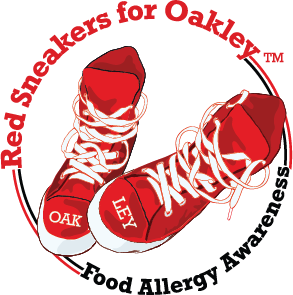Is Your Child’s School Taking These Steps To Prevent Food Allergy Bullying or Teasing?
In 2017, a boy named Karanbir tragically died after a classmate threw cheese at him at school. (https://www.theguardian.com/uk-news/2019/may/02/boy-with-allergy-died-cheese-flicked-at-him-london-inquest-told) Sadly, statistics reveal that about one-third of kids with food allergies report that they have been bullied because of their allergies, and more incidents happen at school. Bullying is never acceptable, but food allergy bullying is especially serious because food allergies can be life-threatening.
So, what steps schools can take to PREVENT food allergy bullying and create a safe and inclusive environment?
1️⃣ HOST A “RED SNEAKER DAY” EVENT
The school can work with Red Sneakers for Oakley to set up a special awareness event. The “Red Sneaker Days” program provides education about: what a food allergy is, why food allergies should be taken seriously, how to recognize a mild and severe allergic reaction, what anaphylaxis is, and what to do in case of anaphylaxis.
2️⃣ BULLYING POLICY DEVELOPMENT
Schools must develop comprehensive anti-bullying policies. Food allergies are generally considered a disability, so this should include an appropriate response to bullying of a student with a disability. If your school does not have a policy that pertains specifically to food allergies, you may suggest they create one.
2️⃣ COMMUNICATION OF POLICIES
The school should then communicate these policies to students, parents, teachers, and staff, with emphasis on the importance of a supportive and respectful environment for children with food allergies.
4️⃣ PARTICIPATE IN FOOD ALLERGY CAMPAIGNS
The school can participate in events and campaigns like Food Allergy Awareness Month (May). Students can create posters, videos, or projects that convey the importance of being mindful of their classmates'
The best way to stop bullying is to create an improved, more INCLUSIVE school culture. This starts with education at the leadership level. Telling bullies “Don’t do that” is only marginally effective, but truly EDUCATING the staff and students results in a more empathetic, supportive climate.
